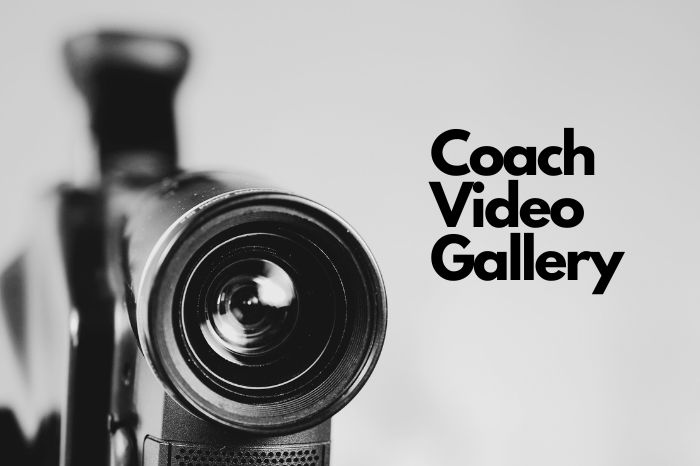My husband and two sons recently convinced me that we should watch The Last of Us, a hit HBO show about a zombie apocalypse caused by, of all things, fungus. And even better, it’s based on a video game. Seriously, guys?
I am, however, always eager to show them that I’m not a killjoy, and we’d already run through every movie in the Marvel Cinematic Universe, so we began.
Bear with me here. I promise this journey ends with hot tips about college-application essays.
The first episode introduced us to the main problem. We met and became attached to a family, then watched as a parasitic fungus turned everyone who encountered it into a zombie. We watched, horrified, as the protagonist suffered a devastating personal loss.
The rest of the season is set twenty years later, in the bleak future the fungus has wrought. Nothing has been manufactured in those twenty years, so car batteries that work are rare and valuable. This fact of the changed world launches the story. Our protagonist wants a working car battery so he can drive across the (zombie-infested) country to search for his brother, his only living relative, who was supposed to have come home weeks ago. The battery the protagonist planned to buy is sold out from under him, and he chases it down, only to find it was no good to begin with. But he’s offered another battery. All he has to do to get it is escort a teenage girl out of the quarantine zone. This task poses enormous physical risks, but it also poses emotional risks having to do with his earlier personal loss. In other words, he faces both external and internal conflict.
It was killjoy time. “This is classic storytelling!” I declared to my family, ecstatic. “They’re just going to make the battery harder and harder to get, and he’s going to have to commit more and more to the girl and the journey, and they’ll take away all his allies and comforts, and there will be no turning back. All because of a battery!”
My son paused the show and waited for the words to stop coming out of my mouth. “Can we just watch it?” he asked. I nodded, and maybe I even apologized.
But I was right! Now my family was rooting for the protagonist to grow and change in addition to hoping he would survive. Some challenges made the quest more difficult, and some failures threatened the central relationship. Each episode put us through the wringer. And we couldn’t wait to find out what would happen next.
What in the world does this show have to do with college-application essays? Let’s take a look at The Common App’s essay prompts. The second one on the list invites applicants to “recount a time when [they] faced a challenge, setback, or failure.”
The idea of writing about failure in a college-app essay can make people — especially loving parents — nervous. I’ve received more than one email along the lines of: “Should our child really write about a time they failed? Shouldn’t the essay show them in their best light?”
Well, yes, but we might have different ideas about what that best light is. Parents are understandably proud of their children’s accomplishments. The game-winning goal. The violin solo that made the audience weep. But these are not, on their own, stories, and college-app essays should tell stories. In the words of one Yale admissions officer, “The more you can make [the essay] a story with very specific details, the better.” Through stories, we can follow people on a journey and see what they’re made of — whether they’re fictional characters or college applicants.
The “failure” prompt steers the writer toward conflict — the engine that makes stories go. It arises when the protagonist wants something (like a battery!) and is blocked from getting it. The protagonist usually keeps pursuing the goal, facing challenges, setbacks, and failures (conflicts!) as the story moves toward resolution. It might not be the resolution they envisioned at the start, but that’s often what makes a story meaningful, because it leads to change in the protagonist.
Conflict makes our hearts beat faster and our stomachs churn. Most of all, it makes us vulnerable, but it's by making ourselves vulnerable that we make ourselves knowable.
Like binge-worthy shows, personal essays have protagonists, and you, the writer, are the protagonist of your essay — your story. Let’s imagine a slightly less apocalyptic scenario: a star high school basketball player routinely nails buzzer-beating shots but misses a lot of her shots from the free-throw line. What she wants is simple: to make her free throws. But she keeps failing. There are no zombies here, and her opponents aren’t even allowed to block her shots. Her conflict comes from within. She doesn’t have technical issues with shooting, and she makes free throws during practice, so the misses have to do with the particular internal pressure of the free-throw situation in a game. Further conflicts arise: her relationships with some teammates deteriorate, and she worries about her future as a player.
Certainly this essay could turn out to be, simply, an unflattering tale of woe (I do always let students know when a story is making them look bad). But if we see the protagonist trying to address the problem, contemplating its source, taking action, and learning — whether she masters the free throw or not — we have the makings of an essay that helps an admissions reader get to know her and how she approaches problems, driven by a story that invites the reader into her distinct experience.
The rest of the Common App essay prompt provides guidance toward resolution: “How did [the challenge, setback, or failure] affect you, and what did you learn from the experience?” These aren’t trick questions. The readers really want to know. In answering these questions, the writer might reflect on the difference between the outcome she hoped for and the one she got. She might discover ways that this story connects to other parts of her life. If she stays honest and curious throughout the process of writing her story, she might recognize and come to appreciate something new about herself.
At the risk of sounding like an utter sap, this is what I live for as a coach!
At Hillside, we find true, revealing stories first, and we help the writer choose a prompt once we understand how they might meaningfully reflect on their story. The “failure” prompt points most obviously toward conflict, but several others point that way, too. One prompt asks writers to “[r]eflect on a time when [they] challenged a belief or idea.” This kind of challenge might begin with inner conflict that eventually causes external conflict. Even the prompts that offer the option of discussing an accomplishment or talent steer writers toward stories. A popular prompt invites students to “[d]iscuss an accomplishment, event, or realization that sparked a period of personal growth and a new understanding of yourself or others.” I find the best essays about accomplishments have conflict embedded in the story of getting there. True personal growth is hard-won. I don’t go rooting around for conflict in my conversations with students; it tends to turn up when we examine experiences closely.
Conflict is uncomfortable. We lose sleep over it. It makes our hearts beat faster and our stomachs churn. Most of all, it makes us vulnerable. That’s why it can feel risky to run toward it in college-app essays, which are, after all, meant to be appealing. But an invitation to a story is the first appeal, and it is by making ourselves vulnerable that we make ourselves knowable. If your essay has conflict, you’re telling a story, and a story will make the admissions reader genuinely want to read on — rooting for you, the protagonist — eager to know what happens next.
Kate is Director of Communications and a Hillside coach.




